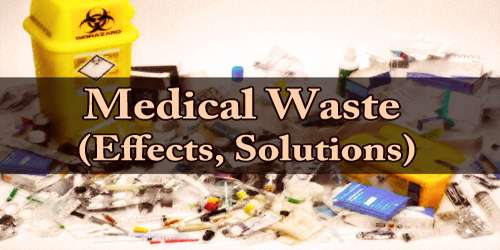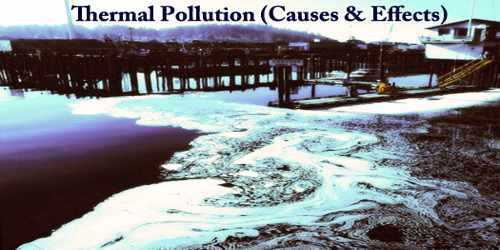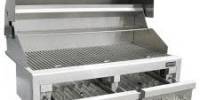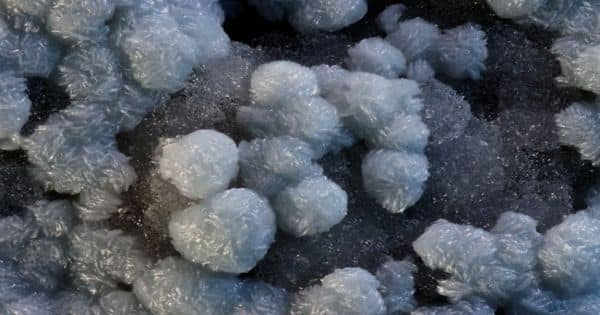Medical Waste is any waste that is generated as a by-product of healthcare work at doctor’s surgeries, dentists, hospitals, and laboratories. It includes any material that could come into contact with the body during diagnosis, research, drug administration or any type of treatment.
The Medical Waste tracking Act of 1988 defines medical waste as “any solid waste that is generated in the diagnosis, treatment, or immunization of human beings or animals, in research pertaining thereto, or in the production or testing of biologicals.” This definition includes, but is not limited to:
- blood-soaked bandages
- culture dishes and other glassware
- discarded surgical gloves
- discarded surgical instruments
- discarded needles used to give shots or draw blood (e.g., medical sharps)
- cultures, stocks, swabs used to inoculate cultures
- removed body organs (e.g., tonsils, appendices, limbs)
- discarded lancets
It’s likely to be infectious, or potentially infectious, and is often contaminated with bodily fluids in some way but the term can also be used to refer to general waste from any medical practice, as well as specific waste streams typically found in the medical industry.
Effects of Medical Waste –
The term “medical waste” can cover a wide variety of different byproducts of the healthcare industry. The broadest definition can include office paper and hospital sweeping waste. There are many different types of medical waste, categorized largely by the types of materials uses and the waste disposal methods. In general, in the UK medical waste is separated into two main types: hazardous and non-hazardous. In the US and other parts of the world, there are four major types of medical waste: General, Infectious, Hazardous, and Radioactive.
Many of the same types of medical waste have different names that can be used interchangeably, depending on which country we are operating in.
Meningitis: Meningitis can be defined as an acute inflammation of the protective membranes covering the brain and spinal cord. People who are diagnosed with Meningitis often suffer from symptoms like headaches, neck stiffness, and fever. Meningitis can be either bacterial or viral and can be transmitted by contaminated body fluids.
Meningitis can thus be transmitted via contaminated syringes and needles. Therefore, medical waste contaminated with Meningitis bacteria may cause severe health conditions if people get in touch with this waste products.
Parasitic infections: Medical waste can also lead to parasitic infections. Materials that are contaminated with parasites may come from research institutions or laboratories. If these contaminated waste products are not treated and disposed of properly, they can lead to parasitic infections for humans and animals and may cause serious health conditions.
Blood poisoning: Blood poisoning (or also called bacteremia) is the presence of bacteria in the blood which can cause severe infections or other health complications. It can also cause sepsis which can be life-threatening in many cases. Blood poisoning can occur when contaminated needles or other infected instruments get in touch with the blood of patients.
Infections of the skin: Skin infections are usually caused by bacteria entering the skin through wounds or spreads. Skin infections may lead to local swellings or other adverse effects. If contaminated medical waste is not treated properly, the waste can cause skin infections if humans get in touch with the contaminated material.
Candida albicans: The infection with Candida is usually caused by Candida yeast. The infection with Candida can come in many different forms. Candida can cause serious health conditions, especially for elderly people or children which have weak immune systems. Candida can be transmitted to humans if the contaminated medical waste is not disposed in an appropriate way.
Hepatitis: An incorrect treatment of medical waste may also result in the infection of patients with Hepatitis B and C. Hepatitis causes an inflammatory condition of the liver and thus is a quite serious disease. Hepatitis can be transmitted through medical waste if reused syringes are not disinfected properly.
Diseases from vaccines: Vaccines are quite helpful to humans to prevent serious health conditions. However, if the used vaccine material is not disposed of properly, it may pose serious health issues to the environment since the waste may still contain living pathogens which may spread into the environmental system and contaminate animals as well as humans.
Methicillin-resistant Staphylococcus aureus (MRSA): MRSA can cause serious health issues since the bacteria is resistant against many antibiotics. People with a weak immune system may suffer from severe health conditions or may even die since MRSA can often not be treated efficiently. An infection with MRSA can happen if medical waste methods are not applied properly.
Sexual infections: Herpes and other sexual infections can be transmitted if medical waste is not disposed of properly. Even small contacts with these bacteria can lead to an infection of patients, either through small breaks in the skin or through contaminated facilities like syringes that get in contact with the patients‘ blood.
HIV: HIV can also be caused by the use of contaminated syringes or other materials that get in touch with a patient’s blood. Although HIV can be currently treated much better than in former times, it still is a quite serious and life-threatening disease.
Ebola: Especially in poor developing countries, Ebola still is a quite severe disease which causes many deaths each year. Since it is quite contagious, contaminated medical waste has to be handled with great care in order to prevent the spread of the disease.
Environmental impact: Medical waste can not only pose serious health conditions to humans, it can also lead to an infection of animals if medical waste is not treated properly and they get in touch with this waste on landfills. If animals are contaminated, they may transmit their diseases to other animals and the disease may be spread. Eventually, even humans may be affected since we eat meat from farm animals which may also have been contaminated.
Unless it’s managed properly, medical waste can present several health hazards to healthcare employees, waste workers, and the general public. Discarded needles can expose us to needle sticks and possible infection if they’re accidentally sent to recycling facilities, or if containers break open in transit. Housekeepers and janitors are also at risk when sharps poke their way out through plastic bags.
Hazardous waste can expose us to microorganisms, radiation burns, poisoning, pollution, and other dangers. Finally, improperly treated waste sent to landfills can contaminate our drinking water and environment.
Solutions for the Medical Waste Problem –
Appropriate disposal of medical waste: One main measure against medical waste and its possible adverse consequences it the appropriate disposal of medical waste. In developed countries with good infrastructure, the appropriate disposal of medical waste is almost assured.
However, there are many poor countries that lack the knowledge and often also the financial circumstances to be able to assure a proper disposal of medical waste. Especially in these countries, hospitals and other medical facilities have to be educated about the adverse negative consequences of incorrect handling of medical waste on the environment.
Medical facilities should also be subsidized by local authorities or governments in order to be able to dispose of medical waste appropriately.
Avoid medical waste: Another obvious but yet effective way to mitigate the problem of medical waste is to simply avoid the production of it. However, this is easier said than done since in many cases, medical waste cannot be significantly reduced.
For example, it is not possible to reuse needles in a safe way since they can transmit diseases to other people. A more realistic concept would be to try to reduce the packaging material related to medical waste. By doing so, significant amounts of medical waste could be saved.
Government regulations: Government regulations concerning the proper disposal of medical waste are an important factor in order to fight the adverse consequences of medical hazardous waste. Strict rules have to be set by governments on how the disposal processes have to be carried out in order to avoid any adverse effects on the environmental system. These government regulations should also take into account the latest research findings in order to be able to improve disposal standards.
Subsidies: Especially in poor developing countries, it can make sense to financially support hospitals and other medical facilities. Through this financial support, the medical facilities may be able to increase their standards regarding medical waste disposal. This would increase the probability that the medical waste is disposed in a safe manner and thus would reduce the probability for medical waste related diseases.
Research: Research is crucial to further improve processes. This is also true for the disposal of medical waste. If we are able to develop improved disposal processes or treatments for medical waste, we will be able to get rid of it in a cheaper and more effective way. Thus, research on the topic of medical waste disposal is crucial to further increase our hygienic standards and to prevent the spread of diseases from an incorrect treatment of medical waste.
Education: Education could also mitigate the adverse effects of medical waste. Educating nurses and doctors about the proper disposal of medical waste is obviously a crucial step in order to ensure safe processes. However, we also should educate normal people on how to deal with their medical waste when they apply medicals at home. By doing so, people will take more care when they dispose of their potentially contaminated medical waste.
Work together: It is crucial to work together and to share the newest insights on medical waste disposal and treatment. Especially for scientists, it is crucial to share their findings with other researchers in order to spread the knowledge to all countries in the world. By sharing these findings, many people will benefit from these new insights and the medical waste disposal processes all over the world are likely to be improved.
It is vital to understand the different types of medical waste and separate them accordingly, in order to protect healthcare workers and other patients, and to dispose of the waste safely and effectively. Different types of medical waste require different disposal techniques to ensure that any infectious materials cannot contaminate or spread to other areas.
Medical waste is classified as any possibly contaminated byproduct of medical research, treatment, or other healthcare activity. It can come from physician’s offices, dentists, veterinary clinics, research laboratories, or funeral homes. Medical waste comes in many different types and can cause serious health conditions both for humans but also for the whole environmental systems. Especially in poor countries with low regulatory standards for the proper disposal of medical waste, medical waste is often treated in an incorrect manner.
This could lead to a spread of contagious diseases and could potentially kill many people. There are several measures to mitigate the medical waste problem. Governments and researchers have to work together in a collective way and share their newest insights on improvements concerning medical waste disposal.
By doing so, we could also improve the framework of medical waste disposal all over the world and thus accomplish a more effective way to fight the spread of diseases resulting from an incorrect treatment of medical waste.
Information Sources:
















